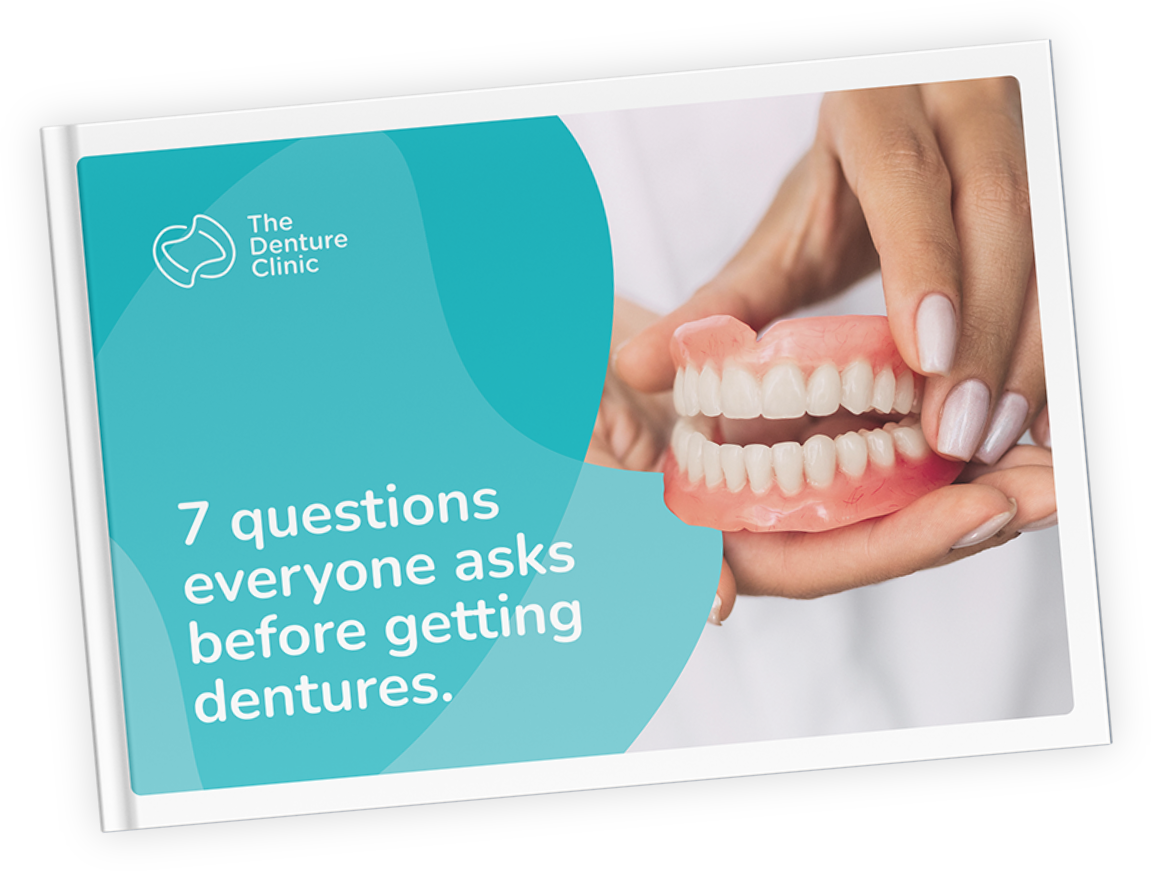Are you getting your first set of
dentures? It’s natural to have mixed feelings about this change—curiosity, anticipation and even a bit of apprehension. In this blog, we aim to help you understand what to expect and how to handle your new lifestyle adjustment. Read on to learn about the dos and don’ts for denture wearers.
Daily Care Tips For Your New Dentures
Taking proper care of your dentures may help extend their lifespan and potentially make your experience more comfortable. Here are a few tips:
Do:
- Keep your dentures clean by brushing them daily with a soft-bristled brush and non-abrasive cleaner.
- Soak your dentures overnight in a solution suggested by the dentist to keep them moist and maintain their shape.
- Rinse your dentures before brushing to remove any loose food particles.
- Handle your dentures with care and brush them over a folded towel or a basin of water to avoid damage if they accidentally drop.
Don’t:
- Use hot water to soak or rinse your dentures; it could warp them.
- Bend or damage the plastic or the clasps when cleaning.
- Use regular toothpaste on your dentures. Many types of toothpaste contain abrasives that can scratch delicate surfaces.
- Neglect to visit your dentist regularly. Routine check-ups are important to retain proper fit and check the condition of your dentures.
Foods To Choose And Avoid With Dentures
Adapting your diet to accommodate new dentures is important. Eating with your new dentures might take some time and practice.
Foods To Choose:
Soft foods are particularly recommended as they are easier to chew and less likely to cause damage. Options may include:
- Soft fruits such as bananas and berries
- Well-cooked vegetables like spinach
- Grains such as oatmeal, soft-cooked rice and pasta
- Proteins like eggs and fish
These foods may help prevent discomfort and provide adequate nutrition as you adjust to your new dentures.
Foods To Avoid:
Some foods can pose challenges or cause damage to your dentures. Avoiding these can help maintain your dentures in good condition:
- Hard foods that require significant biting force, such as nuts and hard candies
- Sticky foods like chewing gum and peanut butter that can dislodge dentures
- Tough meats that can be difficult to chew
- Raw vegetables, such as carrots, which might snap dentures
By avoiding these foods, particularly in the early stages of wearing your dentures, you might be able to prevent potential issues and enjoy a more comfortable adaptation period.
Overcoming Common Challenges As A New Denture Wearer
Adapting to dentures is more than just a physical adjustment—it’s a lifestyle change. Here are some common challenges you may face:
Learning To Speak Clearly
Speaking clearly with dentures might take a bit of practice. Reading aloud and repeating tricky words can help accelerate your adaptation.
Eating Properly
You can start with soft foods cut into small pieces. Chew slowly, using both sides of your mouth to keep the dentures in place.
Maintaining Oral Hygiene
Use a soft toothbrush to clean your gums, tongue and the roof of your mouth every morning before you put your dentures in.
Need Help With Your New Dentures? We’re Here For You!
If you’re a new denture wearer, remember that you’re not alone. Our team at
The Denture Clinic is here to support you. We begin with a comprehensive consultation to discuss your denture needs. Our dental prosthetists will answer any questions you might have and provide continuous support after your visit. Whether it’s your first pair of dentures or you are seeking adjustments to an existing set, we are here to help.
Contact us today to schedule an appointment for personalised advice and support.


